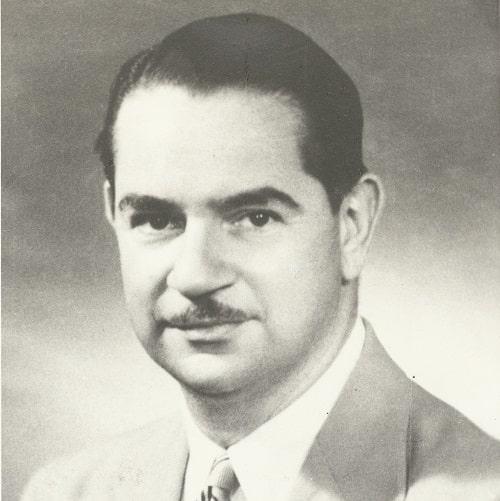Paul Ghalioungui was born in Lower Egypt, in a city called Mansurah where young Paul received his preparatory education in the French school Collège des Frères. When his family moved to Cairo he continued his education at the Collège des Frères, Khoronfish, Cairo. At that time there was only one university in Egypt, first known as the Egyptian University, then as Fouad el-awal, and finally as Cairo University. Paul entered the medical faculty and graduated in 1929, pursuing his clinical studies at the Kasr-el-aini Hospital. He spent four years as house officer and registrar to A G Biggam, later Sir Alexander, [Munk’s Roll, Vol.V, p.37] during which time he obtained his MD. This was followed by his membership and fellowship of the College. The years between 1933 and 1964 were passed in teaching, examining, and conducting research in endocrine and metabolic diseases; a time when diagnoses were made on purely clinical grounds sometimes supported by biological or biochemical assays. In 1949 he was appointed professor of medicine to the new Ain Shams University and later became chairman of the department of general medicine.
Paul was a highly cultured man and a brilliant linguist. He was interested in the history of medicine, both Arabic and Pharaonic. His English and French culture enabled him to acquire six languages and he could both read and write hieroglyphs. His publications included some 20 books, both in Arabic and English. As the first historian of Egyptian medicine he contributed a great deal to this field. He was an honorary member of the Pan-American Society of the History of Medicine and of the Ateneo de Historia de la Medicina, Buenos Aires; correspondent member of the National Academy of Medicine of Buenos Aires, and an honorary member of the Argentinian Medical Association. He was also president of the Egyptian Society of Endocrinology and Metabolism and vice-president of the Egyptian Society of Rheumatic Diseases, and a member of the board of the Egyptian Medical Association.
Outside medicine his interests lay in photography and archaeology. He was president of the Cairo Rotary Club in 1956 and secretary-general of the Institut d'Egypte in 1963.
Paul was instrumental in organizing the very successful 29th International Congress for the History of Medicine which was held in Cairo at the Marriott Hotel. Only one week before his death he was busy lecturing at Mansora University and the Suez Canal University.
He married Huguette Aimee, daughter of Aziz Mancy, a lawyer, in 1934 and they had two sons. His wife and family survived him.
A Ghareeb
Sir Gordon Wolstenholme

